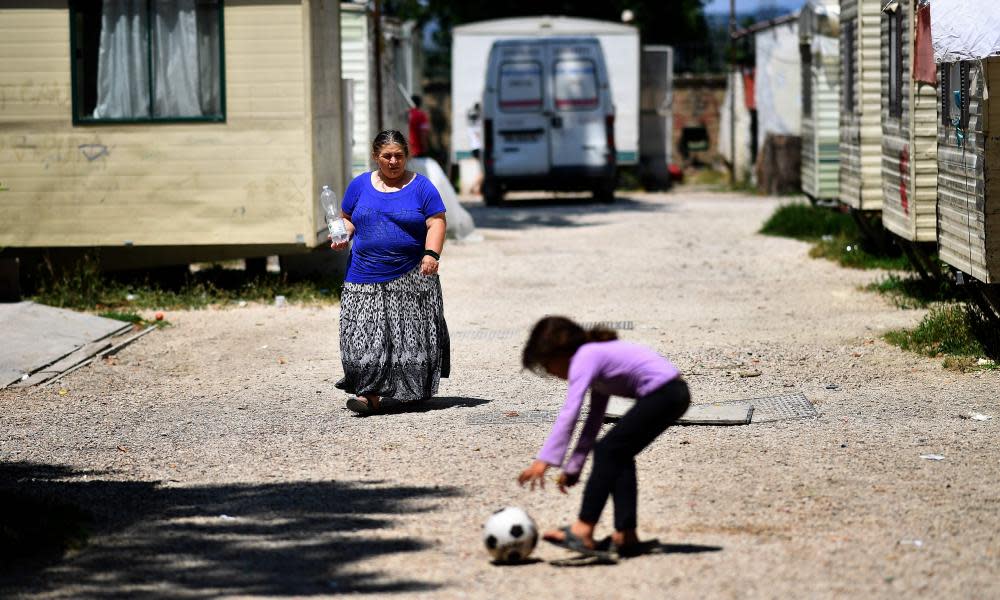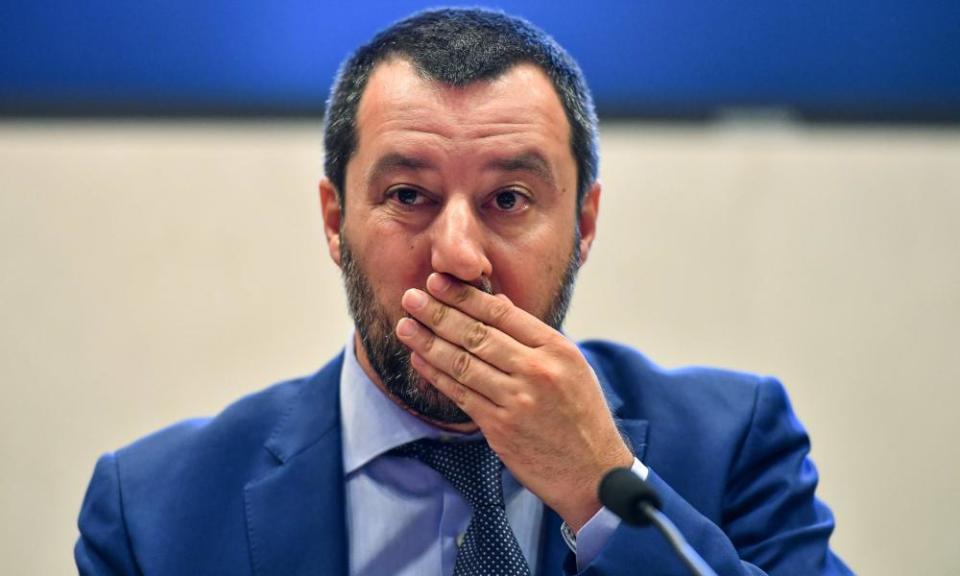Roma may face census as Italy hunts for illegal immigrants

In a slum on the outskirts of Rome, members of the Roma community are at odds: some are afraid, some angry and others indifferent. But some support a vitriolic pledge by Matteo Salvini, Italy’s new hardline interior minister, to conduct a census of their community and expel those who are living in the country illegally.
“We heard Salvini’s words and we congratulate him,” says Stefano, whose family came to Italy from Bosnia more than 50 years ago.
“There are so many delinquents within the Roma community – in this camp and across all of Italy. This camp used to be a lot better now it’s filthy – and there are bad people here. Salvini only wants to bring tranquillity to Italy, and I agree with him.”
Stefano has nine children, all of whom voted for Salvini’s far-right League party in general elections in early March, and 60 grandchildren.
We don’t want to live in this dump, we wanted proper houses. It’s a miracle that nobody has become seriously ill
Stefano, Salone camp near Rome
“Salvini said he would clean-up Italy and get rid of the illegals, my siblings and I voted for him,” says one of his children, who asks to remain anonymous.
They have lived in the Salone camp, located about 15km to the east of Rome’s historic centre and home to over 600 others, for seven years. Roads strewn with rubbish and filled with muddy puddles divide the caravans and huts in which people reside.
Stefano says that a rat recently crawled across one of his grandchildren’s face as she slept, biting her lip.
“We don’t want to live in this dump, we wanted proper houses. It’s a miracle that nobody has become seriously ill.”
Salvini’s attack on the Roma people came a week after he refused to allow a ship carrying more than 600 migrants rescued from the Mediterranean to dock in Italy, forcing it to divert to Spain. The move also recalled the racial laws against the Jewish and Roma communities that were introduced by the fascist dictator Benito Mussolini in the 1930s.
Salvini vowed to turn “his words into action” as he strives to appease a supporter base which has almost doubled since the elections.
Some at Salone fear that Salvini will conduct a census, so much so they are afraid to have their photograph taken. But others aren’t so worried.
“Who cares? He’s a fool who says foolish things,” says Silvia, who has been in the camp for six years, as she hosed down the street next to her caravan.
“He is against all foreigners, yet so many of us were born here. If he ever did get rid of us – even those without documents – Italy’s economy would totally collapse.”
There are an estimated 130,000 Roma people in Italy, around half of whom are Italian citizens. Many live in camps similar to Salone. Stefano feels confident that Salvini will spare his children and grandchildren, who were born in Italy, despite the minister revealing his disdain for the entire community through the remark: “Unfortunately, you have to keep the Italian ones at home”.
Stefano says Roma people earn a living by either selling discarded clothes or furniture, or by cleaning out the long-neglected basements of Italians’ homes. He dismisses the perception that children don’t go to school and are merely sent out to beg and steal.
“Five buses come each day to bring the children to school,” he adds.

Salone is among the five camps that were either built or extended by Gianni Alemanno, a rightwing mayor who led Rome between 2008 and 2013. He named them “villages of solidarity”.
But there is little solidarity to be found among those in Salone.
“Don’t go down to the far end, that’s where the Gypsies are,” warns Stefano.
Carlo Stasolla, the president of Associazione 21 Luglio, which supports Roma rights, said it is no surprise that people in the camp support Salvini.
“It’s no different from anywhere else in terms of the type of people whose vote he manages to capture,” he says.
“But they also voted for him in the hope that if he got into government, he would help them instead of being harsh towards them.”
But Stasolla, who lived among the Roma community for 14 years, is taking Salvini seriously.
“When people talk about categorising, they do actually do it,” he says.
He points to the example of Roberto Maroni, an interior minister from the League party between from 2008 and 2011, who for a year conducted a census in Rome and Naples before it was stopped by an Italian court.
“Everyone in the camps, including children, were taking to the police station and made to give their fingerprints.”
Like Stefano and his family, all would like to live in proper homes.
“Roma are simply poor people living in squalid conditions,” adds Stasolla. “There is so much prejudice, but unless the local authorities help it’s impossible for them to get a home, as many have neither the documents or the economic resources.”

 Yahoo News
Yahoo News 
